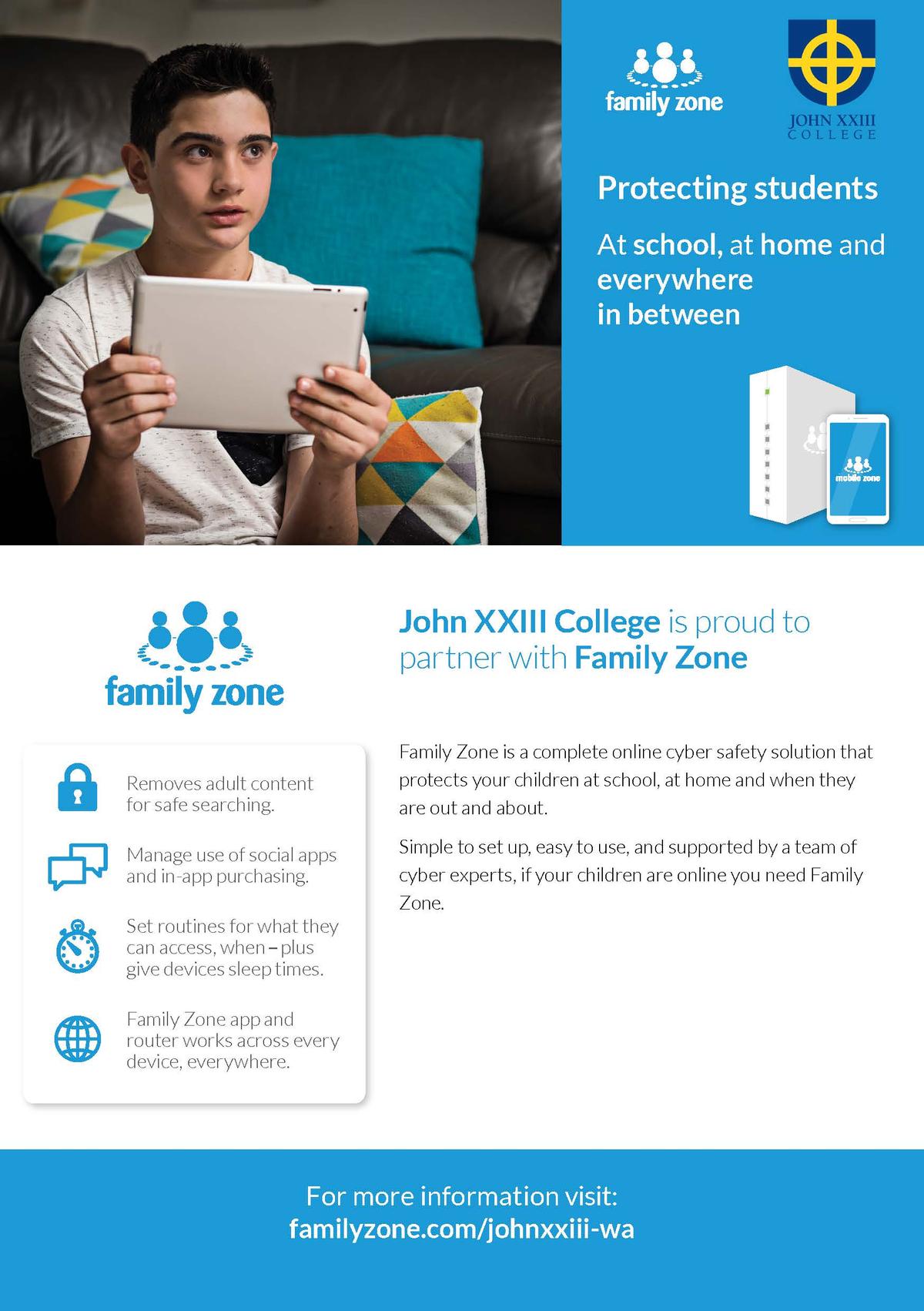
Family Zone & Cyber Safety
Download Family Zone
Make use of the Family Zone Accounts which we are offering to John XXIII College families for free, as part of our College contract negotiations until 2020.
By setting up a private Family Zone account, you can apply age-appropriate parental controls on every device your child has access to, in any location. To find out more visit https://www.familyzone.com/johnxxiii-wa
Family Zone Webinar recordings
For those that were unable to make the Family Zone webinars, we have recorded both sessions for you to view in your own time, and they are available here: https://www.familyzone.com/johnxxiii-wa
Webinar topics are:
- Getting Started with Family Zone
- Advanced with Family Zone
Drug ads on social media are the new normal, study finds
"Before it was a case for youngsters of whether they should really risk it, going on to the street to buy drugs. But now because it's on their feed and on their timeline, many are thinking 'why not?’”
One in four young people have seen illegal drugs advertised by dealers on social media, according to the first definitive study of the link between social media and drug use.
The study, commissioned by British advocacy group Volteface, surveyed 2000 16- to 24-year-olds. One quarter of those surveyed told researchers they commonly saw drug ads on Facebook (47%), Instagram (55%) and Snapchat (56%).
Cannabis was the most popular illicit substance advertised on social media, followed by cocaine and MDMA/ecstasy.
Almost half of the under-18s surveyed were untroubled by the practice of drug dealers peddling their wares on popular social platforms. Researchers agree that, for this age group, paid drug ads have become a fact of everyday online life.
“For them, it’s a normal part of day to day life,” said Volteface spokesperson Lizze McCulloch.
"It's so easy. People joke around about being friends with their drug dealer, because the dynamic between the buyer and the dealer has changed. It's no longer this scary concept of this hooded person on the street,” one teen-aged commentator told Sky News UK in a report broadcast this week.
Adults who’ve never encountered come-ons for illicit substances probably just don’t know how to look, added another 17-year-old. “The older generation … might not see it online, because they don't know the key word to search for drugs for sale."
It was a reference to the hashtags young people use to “unlock the door” to drug content.
Unsurprisingly, the platforms in question denied any wrongdoing in accepting ad revenue from the dealers of illegal substances.
Instagram and Facebook - which are owned in common - issued a joint statement insisting, “We don’t allow the sale or purchase of illegal drugs … We work closely with the police to keep drugs content off our platforms.”
Snapchat’s disclaimer struck a similar note. “Our community guidelines prohibit anyone from using Snapchat to buy or sell drugs … We encourage anyone who sees illegal content to report it.”




